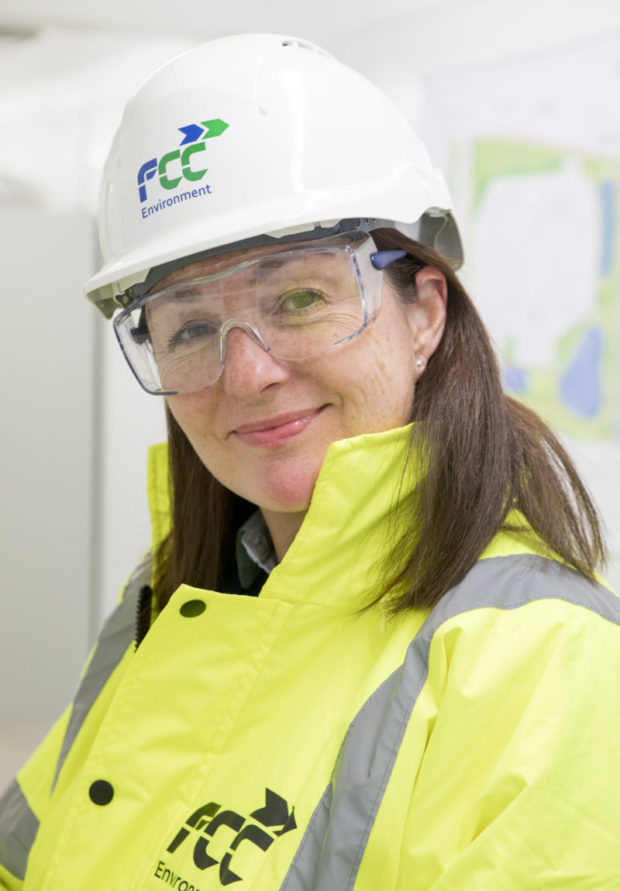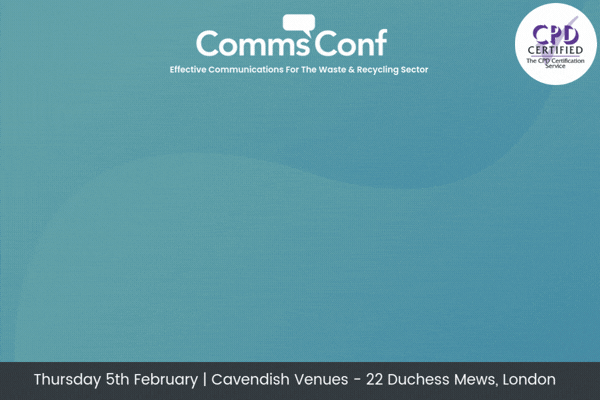OPINION: When it comes to dealing with waste, we are a nation conditioned to ensuring everything is put in the correct coloured recycling bin.
While recycling will always have a key part to play in reducing our footprint on the planet, it is only part of the solution. There must be a sizeable cultural shift in encouraging more of us to first make do and reuse.

There must be a radical rethink amongst the public of how we see the “waste hierarchy”, which Defra defines as ranking waste management options according to what is best for the environment.
Top priority is preventing waste in the first place, so that means not filling up your bins with items that can be reused.
As household budgets are increasingly squeezed and people are continuing to look for new ways to save money, this is the ideal time to widen the debate. Reuse must become a key pillar of the circular economy.
Our research reveals a shift in the mindset of the public in embracing this concept. There is a growing appetite among the public for reusing items, with our YouGov/FCC Environment polling showing that almost 80% agree that all household waste recycling centres (HWRCs) should have a charity reuse shop on site or nearby (see letsrecycle.com story).
We previously polled the public about reuse in 2020 and since then the number of people who purchased an item at their local reuse shop has risen by 12% to 56%. They are buying everything from clothes to furniture and electrical items, which is a great way to save money while helping the environment.
Reuse offers the greatest carbon benefit of all the waste management solutions. In 2020, the UK reused a staggering 3.4 million items, generating an equivalent CO2 saving of 123,236 tonnes.
FCC Environment is committed to diverting as much material as possible for reuse – year-on year we increase our reuse capacity and are always looking for new partnerships and opportunities.
Trial
We have trialled pop-up shops and innovative ways to make drop-off for reuse more appealing, such as operating repair cafés and training staff to spot appealing items for reuse. We are working with charity partners and local authorities to maximise the social value of our projects.

For example, we operate 11 recycling centres across Suffolk. In 2019, more than 400 tonnes of items were sold through the on-site reuse shop. In 2020, a second shop opened at the new recycling centre at Bury St Edmunds. The reuse shops are run as a three-way partnership between FCC Environment, Suffolk county council and The Benjamin Foundation, a local charity that focuses on youth homelessness.
So far, our efforts have helped to support victims of domestic abuse, ex-prisoners, homeless people, young people and families in need, people suffering serious illness and those with mental health issues. In 2021, our reuse shops generated £1.7 million in revenue for our charity partners.
This is just the tip of the iceberg and there is so much more we can do to end our throwaway culture. Our research shows the public’s appetite for reuse does not stop at buying second-hand items – people are keen to reuse and donate items, even if they do not currently have access to a reuse shop or drop-off centre.
Almost three quarters of people who do not have access to a reuse shop said they would donate to their HWRC if it had one nearby or onsite. Added to this, our polling showed that almost 60% of people said they would be more likely to donate than throw away their good quality, second-hand items if they knew they would be resold at a reuse shop.
As we try to move away from our throwaway culture it is heartening to see there is a desire among people to make do rather than purchase something new. We found that almost two thirds of people said they would prefer to be shown how to repair their broken item at their local HWRC, with 81% of people believing companies and local authorities should be encouraging people to fix their broken items.
Defra set its stall out more than a decade ago on what it expects from business and local authorities in the handling of waste, including taking all reasonable measures that chime with the waste hierarchy – prevent waste then re-use, recycle, recovery and last of all, send to landfill.
Joined up thinking
However, there remains a lack of joined up thinking as reuse still does not count towards business carbon reduction figures. If we are to see a real societal shift in the way we all deal with waste, business needs that added incentive to be able to clearly demonstrate how reusing items is contributing towards the race to net zero.
We will be pushing for progress on this within the industry to develop a formal metric that recognises the value of this work. Reuse is also a win for the environment, allowing us to move waste up the hierarchy and create a more circular economy, one bargain at a time.






Subscribe for free